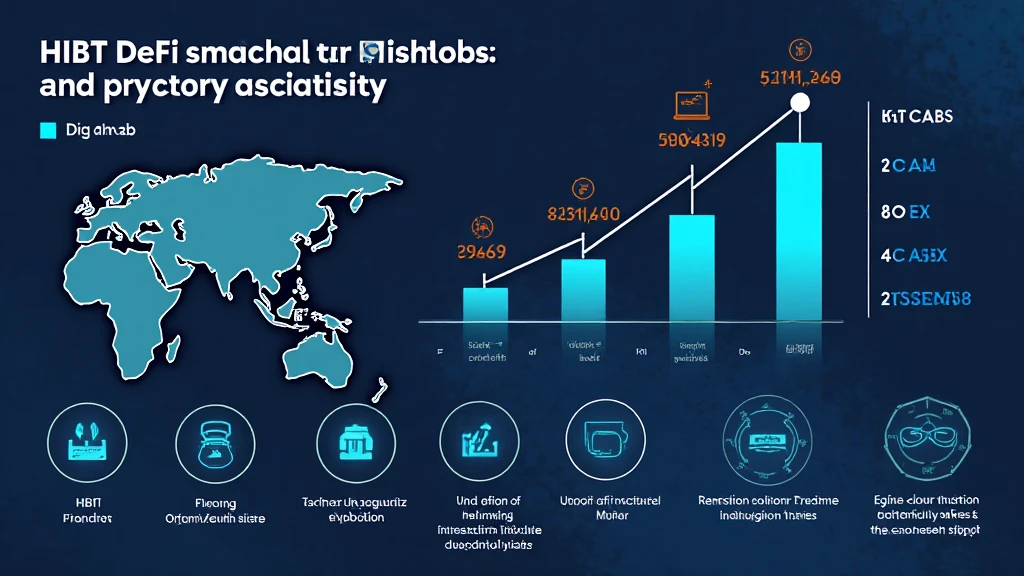Institutional Adoption of Coinbase Services: Where are We Now?
In a landscape where traditional finance meets the roaring world of cryptocurrencies, Coinbase has emerged as a pivotal player. With $4.1 billion lost to DeFi hacks in 2024 alone, the need for secure, trustworthy platforms is more evident than ever. The institutional adoption of Coinbase services is not only a game changer for investors but an important barometer of the entire crypto market’s trajectory.
This article will examine how Coinbase has positioned itself at the helm of cryptocurrency exchange services for institutions, exploring its impact, benefits, and future outlook in the growing market. As we dive into the depth of this subject, we’ll also consider the implications for Vietnamese users, whose engagement in cryptocurrency is growing rapidly.
The Rise of Institutional Interest in Cryptocurrency
Institutional interest in cryptocurrencies has surged over the past few years. A report by Fidelity shows that 52% of institutional investors were invested in digital assets by 2022, a significant increase from previous years. As the market matures, institutions are seeking reliable platforms to manage their digital asset strategy. Here’s what that looks like:

- Increased Investment: Institutions like Grayscale have led the way with billions of dollars in Bitcoin trusts, indicating that more financial players are entering the space.
- Defined Regulations: Governments are starting to draft frameworks that clarify how cryptocurrencies will be treated, allowing institutions to feel more secure investing in these resources.
- Secure Custody Solutions: With the rise of custodial services, institutions can securely store large amounts of cryptocurrencies without fear of hacking or loss.
Understanding Coinbase’s Institutional Services
Coinbase offers a suite of services designed specifically for institutional investors. These include:
- Coinbase Custody: An institutional-grade custody solution compliant with regulatory standards, ensuring that assets are securely managed.
- Coinbase Pro: A trading platform tailored for professional traders, featuring advanced trading tools and analytics.
- Coinbase Prime: Designed for larger institutions, it offers services like capital markets access, liquidity solutions, and advanced portfolio management.
According to a market analysis by Blockdata in 2023, Coinbase custody services now protect over $30 billion in digital assets for institutions. This exponential growth can be attributed largely to the growing trust agencies have in Coinbase’s ability to maintain security and compliance.
Coinbase’s Impact on the Vietnamese Market
Vietnam has seen a significant rise in cryptocurrency adoption. According to the “Vietnam Blockchain Report 2022”, there were approximately 5 million crypto users by the end of the year, marking a user growth rate of around 350% in just one year. This makes Vietnam one of the fastest-growing cryptocurrency markets in Southeast Asia.
Coinbase’s services have proven beneficial for Vietnamese investors, who are looking for a secure entry into the world of cryptocurrencies as they brace for an influx of institutional capital. Here’s how:
- Access to Advanced Tools: Vietnamese institutions can leverage Coinbase Pro’s advanced trading features, which helps them make more data-driven trading decisions.
- Educational Resources: Coinbase Academy offers insights into cryptocurrency trading and investment strategies, enhancing the knowledge base of local financial agents.
- Regulatory Compliance: Coinbase ensures that it complies with Vietnam’s regulations, easing institutional fears about investments in this digital asset.
Challenges Facing Institutional Adoption
While the adoption of Coinbase services among institutions continues to grow, several challenges remain. Institutions are typically conservative and require extensive research before venturing into new territory.
- Price Volatility: The unpredictable nature of cryptocurrency prices can deter institutions from making large investments. Strategies must be in place to mitigate this risk.
- Regulatory Uncertainty: As countries establish vague regulations, institutions may hesitate to invest heavily due to compliance concerns.
- Security Risks: Despite Coinbase’s robust security measures, hacks and breaches in the crypto space remain a concern.
Looking Ahead: The Future of Coinbase Services and Institutional Adoption
As we look towards the future, the trajectory for Coinbase services seems optimistic. Market analysts predict a further increase in institutional crypto investments, estimated to reach $1 trillion by 2025. Coinbase is well-positioned to capture this expanding market. Its continued focus on security, compliance, and user experience will be critical as it attracts more institutional clients.
Moreover, in the context of Vietnam, should the trend of rising user engagement and institutional investments continue, we might witness increased regulatory clarity that will further enhance trust in platforms like Coinbase.
Additionally, tools and technologies that enable effective auditing, such as how to audit smart contracts, will become even more pivotal in shaping institutional attitudes towards cryptocurrencies.
Conclusion
The institutional adoption of Coinbase services signifies a paradigm shift in the cryptocurrency space. As more institutions recognize the utility and potential of digital assets, the pathway to broader acceptance becomes clearer. With Coinbase leading the charge with its tailored solutions, the future for institutional investors looks promising.
In conclusion, as we move towards a future replete with opportunities and challenges, Coinbase’s role as a pioneer in the nurturing of institutional trust must not be underestimated.
For further insights and updates on cryptocurrency, visit cryptocoinnewstoday to stay informed of the most recent developments.
This article was contributed by Dr. Anna Harmon, a blockchain technology expert with over 15 years of experience in the financial sector and has published more than 20 papers on digital asset regulations.





